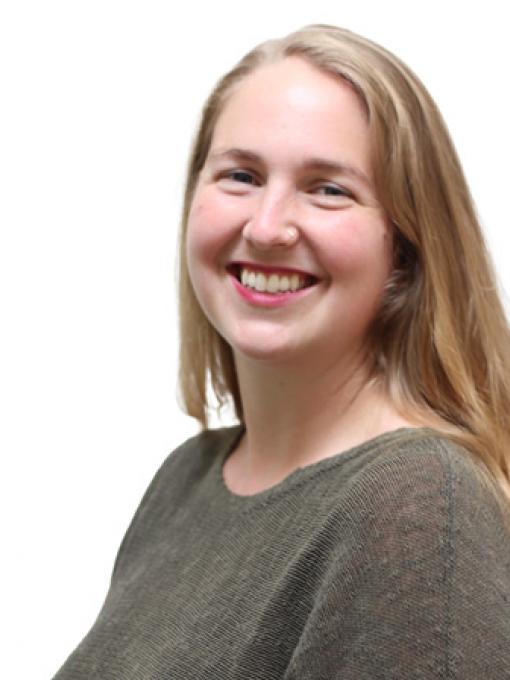On Oct. 27, 11 people from six different states and Washington, D.C., gathered at Friends Place on Capitol Hill for a transformative experience. They came together for FCNL’s inaugural Diaspora Organizer Gathering, a new initiative led by FCNL’s diaspora engagement and partnerships organizer Hadiya Afzal, to build deep partnerships with members of diaspora communities across the United States. This project seeks to transform U.S. foreign policy by empowering diaspora communities to organize and influence legislators on a range of peace- and justice-related issues.
Representing diverse backgrounds—from Egypt to Niger, Bhutan to the Democratic Republic of Congo—these organizers spent four days engaged in deep discussions, advocacy training, and meeting with Hill staff.
My favorite part was meeting so many amazing people from different backgrounds… Good people still exist, and change is likely to happen once you pursue it.
Some participants focused on learning advocacy skills to advance an issue of concern to their community, like restoring diplomatic relations between Nepal and Bhutan. Anisha Thapa and Avinash Tiwari are advocating for reunification with family members in Bhutan who have been separated since the systematic persecution of ethnic minorities in 1990.
Both born in refugee camps in Nepal, Anisha and Avinash are now organizers in their communities. Avinash plans soccer tournaments bringing together the older and younger generations. Anisha is an active member of the organization Peace Initiative Bhutan, where she shares her personal story to champion the reunification of families. In addition to being a student of Fashion Design, Anisha uses her expertise to raise awareness and advocate for the injustices endured by her community.
During the Diaspora Organizer Gathering, participants built new relationships and deepened their understanding of issues impacting other communities. They spoke about the importance of developing solidarity to support each other—including those they previously knew little about. In some cases, organizers had to start by searching for each others’ countries on a map.
Aseel Fara, a Yemeni-American organizer in San Francisco’s Tenderloin neighborhood, also knows the power of advocating for an issue facing a small country, which some members of Congress don’t know as much about.
“My favorite part was meeting so many amazing people from different backgrounds, who I would love to continue working with,” Aseel said. “They are beautiful people inside and out, and I’m grateful for the relationships we built. Good people still exist, and change is likely to happen once you pursue it.”
Certain issues created a deep sense of unity and common cause among the group, like the ongoing violence in Israel and Palestine. On the second night, participants walked to the U.S. Capitol building to hold a candlelit vigil calling for a ceasefire, joined by Gazan filmmaker Ahmed Mansour, who spoke in remembrance of the family members he had lost.
FCNL staff organized panel discussions with Yemeni-American activists Dr. Aisha Jumaan and Jehan Hakim, who shared the story of the powerful peace movement led by diaspora advocates to pass a Yemen War Powers Resolution. They spoke about the backlash they received for speaking out, the tactics they used to get more lawmakers on board, and how they leaned on each other for support.
“Many immigrants come from a background of countries where you don’t have rights, you cannot raise your voice,” said Ghaisha Mohamed, a participant from Jamestown, NC. “You are always under pressure, but here we can express ourselves.”
Ghaisha, who was born in Niger, attended the gathering with her 20-year-old daughter Zainab. Zainab leads the Muslim Student Association at the University of North Carolina - Greensboro.
Zainab reflected that her favorite session was a panel discussion between an Iranian journalist, a Hill staffer for Rep. Rashida Tlaib (MI-12), and a Palestinian activist. “They all had different perspectives from their respective career paths, but they shared the theme of the power we as people of the diaspora have to affect change.”
The Diaspora Organizer Gathering was the first step in building deep relationships among cohort members and FCNL staff.
At the beginning of the weekend, a participant named Mandela Gapala said he did not think legislators would care about his home country, the Democratic Republic of Congo. However, after hearing other organizers speak about their advocacy, Mandela wrote a detailed one-pager about the situation facing his people, the Banyamulenge ethnic minority. He shared this letter in a meeting with the legislative director of his Congressman, who expressed strong interest in building bipartisan support on the issue.
The Diaspora Organizer Gathering was the first step in building deep relationships among cohort members and FCNL staff. Staff will work to strengthen these partnerships in the coming months by traveling to each organizer’s community, conducting listening sessions, offering advocacy training, and visiting important places in the community.
“I learned that there is no impossible situation,” said Ose Okooboh, who lives in Atlanta, GA, and is a member of the Nigerian diaspora. “You just have to find that sliver and keep pushing, keep wedging, keep making the space. It is our duty and our responsibility to find it and to utilize it.”




